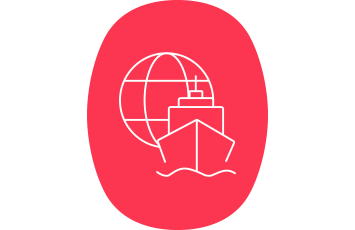Press release
Bureau Veritas and the French Flag develop innovative compliance approach for SeaOwl’s ‘ROSS’ remote operations
Paris La Défense, September 15, 2020 - Bureau Veritas (BV), a world leader in testing, inspection, and certification (TIC) services has been working with the French flag to support and enable SeaOwl’s innovative remote-operated vessel project.
Named ROSS (Remotely Operated Services at Sea), the concept and capability were successfully demonstrated by SeaOwl last week. The ROSS retrofitted, Bureau Veritas classed, supply ship ‘VN Rebel’ was operated by a SeaOwl captain based in Paris. The Paris captain was able to take and maintain command of the ‘VN Rebel’ navigating off the French Mediterranean port of Toulon with full remote control of the ship. The ‘VN Rebel’ was sailing with the required authorizations from the French flag ensuring compliance with the IMO resolution for the trial of Maritime Autonomous Surface Ships* (MASS). This is the very first time that this resolution has been applied in France to a ship of this size.
Bureau Veritas provided a reference framework, and risk analysis - based on its own guidance for autonomous shipping (NI 641), to develop a means for the French maritime administration to approve the ROSS concept as per IMO MSC.1/Circ. 1455 for alternative designs. BV’s detailed risk analysis and marine experts assessed the systems’ critical functions to help demonstrate equivalence with traditional maritime convention requirements for safe navigation and operations as required under SOLAS.
The analysis addressed the resilience of the communications link provided by Marlink (also a partner in the project), the remote operation of watch-keeping, and communications functions. The analysis also included the corresponding remote operations of the machinery including engine, dynamic positioning (DP) provided by Sirehna (also a partner in the project) and the cybersecurity of the system. During the test, in addition to proving the availability of remote navigation functions (steering, visual watch, VHF, anti-collision manoeuvers, etc.), the SeaOwl crew also demonstrated responses to several scenarios including a weather incident, resulting in the loss of communications connectivity, and a cybersecurity attack with the detection of a GPS blurring.
Following this successful demonstration, the next step for SeaOwl is to validate the concept of ROSS onboard a newbuilding designed to provide services to offshore platforms.
Advanced Services Director
Bureau Veritas Marine & Offshore
It is a pleasure to test our guidance (NI 641) in a concrete project like ROSS. It confirms the need to have a thorough risk assessment of the different remotely operated functions, identifying all potential operational scenarios and challenges. One of the challenges for would-be MASS operators and flag administrations has been to find a way to provide a compliance pathway and ensure confidence in both regulator and the regulated. The success of the ROSS project is full of promise as to the quality of future relations between actors and authorities for future developments.
The Department of Maritime Affairs (DAM – the French Ministry for the Sea) has supported this project from inception, and has assisted the stakeholders in the development of a methodology that ensures a high level of safety and allows the certification of the first remotely operated vessel in France.
The Ministry said: ‘This methodology is based on the work carried out by the International Maritime Organization. It is based on analyses to identify the risks resulting from this new technology and to define the most appropriate solutions to reduce these risks. This work also aims to establish equivalence with a conventional vessel with personnel on board. The DAM welcomes this effective cooperation between the administration and industry in the service of a technological innovation project.’
Vincent Boutteau, Managing Director, SeaOwl Group added: ‘Recognized as crucial from day 1 of the project by SeaOwl, safety and compliance have been successfully tackled through MSC.1/Circ. 1455 methodology with the support of BV. The in-depth risk analysis that have been carried out with BV, and a pool of experts gathered by the French Flag authority have significantly improved the initial design to guarantee now full safety and compliance of the tele-operation platform.’










